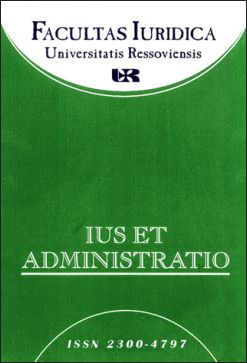Skutki reform dotyczących funkcji ustawodawczej Izby Lordów – meandry praktyki ustrojowej
Słowa kluczowe:
House of Lords, the UK parliament, reforms of 1911 and 1949Abstrakt
There has been done much to change the legal nature of the second chamber of the UK parliament in the XX century. A big part of the new rules, which were established for reforming this House, were provided by two essential acts – Act on Parliament of 1991 and 1949, both referring to participation of the Lords in parliamentary law making process. As is well known, the abovementioned legislation removed the absolute right to veto financial and public bills by the Lords, replacing it only in the latter case with suspensory veto formula. The main consequence here was weakening the legal power and decreasing the positon of the House within relationships with cabinet and ruling majority in the Commons. And this is exactly the case that the author of this paper tries to demonstrate to a reader. The general research aim is to present political evolution of the second chamber of the UK parliament after the reforms on the legislative process by means of examples from parliamentary practice. In this way it may be observed how strongly the nature of the Lord was being changed under the legislation of 1911 and 1949.
Downloads
Pobrania
Opublikowane
Jak cytować
Numer
Dział
Licencja
Prawa autorskie (c) 2018 Ius et Administratio

Utwór dostępny jest na licencji Creative Commons Uznanie autorstwa – Użycie niekomercyjne – Bez utworów zależnych 4.0 Międzynarodowe.

